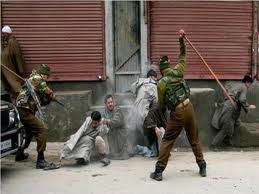Thiruvananthapuram, Mar 7: Kerala Chief Minister Pinarayi Vijayan on Saturday came down heavily on the BJP-led government at the Centre for imposing a ban on two Malayalam channels in connection with the Delhi violence reporting, saying an "undeclared emergency" was prevailing in the country.
Terming the ban as a "dangerous trend", the left leader said it was an indication of the coming dangers. "The Centre has made an infringement into the freedom of the press, crossing all limits. There is a threat that if anybody criticises RSS and Sangh Parivar, they will be taught a lesson," he said here in a statement.
The channels- Asianet News and MediaOne were suspended for 48 hours over their coverage of last month's riots in Delhi, with the official orders saying they covered events on February 25 in a manner that "highlighted the attack on places of worship and siding towards a particular community".
However, the ban was lifted on Saturday morning. Urging everyone to adopt a "democratic vigil" against such trends, the Chief Minister said the tactics of the Centre was to bring everyone under its control by instilling fear.
It was seen that such an approach had repeatedly been made on Parliament, constitutional bodies and judiciary in recent times, he said. Claiming that one of the reasons for the ban was criticism of RSS and the Delhi police by the channels, he said no one is beyond that. "How can it be illegal to criticise RSS? The Constitution guarantees the right of any citizen to express his opinion fearlessly," he said.
People have the right to know what is happening in the country and the media has the right and responsibility to report it, Vijayan said adding that the fourth estate should be allowed to act "freely and equitably". The ban on Asianet News was lifted at 1.30 am, while the ban on Media One was lifted at 9.30 am on Saturday, a source at the Ministry of Information and Broadcasting told PTI.
Sources said the two channels had written to the ministry seeking revocation of the bans, following which it was lifted. "Channel's reporting on Delhi violence seems to be biased as it is deliberately focusing on the vandalism of CAA supporters," the ministry order on Media One had said.
"It also questions RSS and alleges Delhi Police inaction. Channel seems to be critical towards Delhi Police and RSS." The ministry had ordered prohibition of transmission or re-transmission of Media One and Asianet News for 48 hours on any platform throughout India with effect from 7.30 pm on Friday to 7.30 pm on Sunday. The Congress and the CPI had flayed the government over the suspension of Media One and Asianet News, calling the clampdown as "stifling of media freedom".
Former chief minister Oommen Chandy said the ban on the two malayalam channels was an "affront" on the democratic rights of the media. The fourth estate is the pillar of democracy and attempts to suppress the media by the government is "extremely worrying", he said in a facebook post.
"I join all democratic minded citizens in strongly condemning such attempts to muzzle the media by the government," he said. Meanwhile, Press Club, Kerala Union of Working Jouranlists (KUWJ) and Kerala Newspaper Employees Federation (KNEF) took out a march to the General Post Office here against the Centre's action on the two channels.
Media personnel holding placards and raising slogans participated in the march against the centre's decision. Similar protests were held in various parts of the state.







Comments
Add new comment